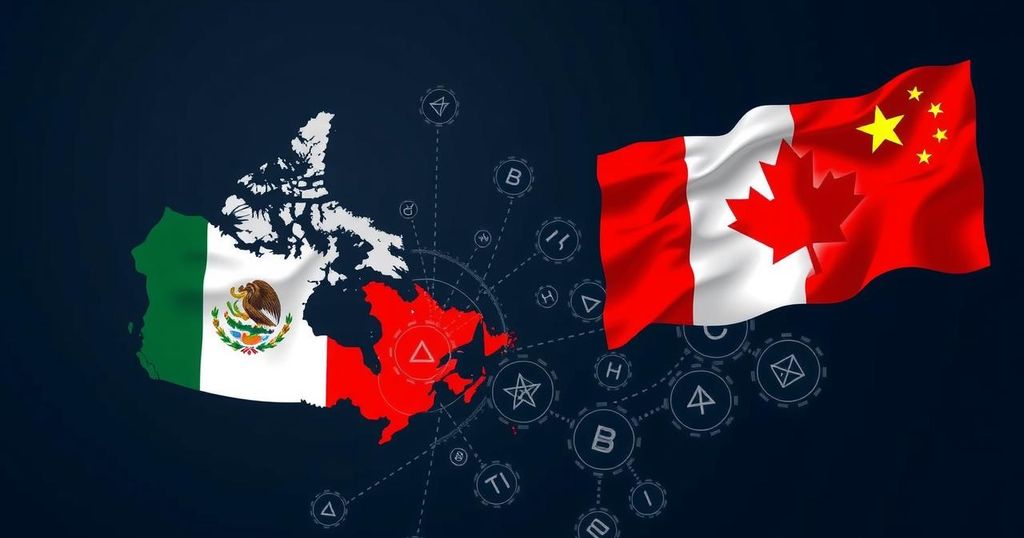Donald Trump plans to impose significant tariffs on goods from Mexico, Canada, and China starting from the first day of his administration, aiming to combat illegal immigration and drug trafficking. His proposed tariffs include a 25% charge on products from Mexico and Canada and a 10% increase on Chinese imports. While tariffs may enhance domestic manufacturing, they could also lead to inflation and retaliatory trade actions.
On the first day of his presidency, Donald Trump has pledged to impose significant tariff increases on imports from Mexico, Canada, and China. This decision, rooted in concerns over illegal immigration and the drug crisis, particularly Fentanyl, was announced through his Truth Social platform, where he specified a 25% tariff on all goods from Mexico and Canada, remaining until the issues he highlights are addressed. He also intends a 10% tariff increase on Chinese imports until they effectively combat drug trafficking into the U.S.
Trump has a history of leveraging tariffs as a means to stimulate domestic manufacturing and offset budgetary deficits resulting from proposed tax cuts. While Trump asserts that foreign nations bear the burden of these tariffs, in reality, they are typically absorbed by American companies, leading to increased costs for consumers. Economists suggest that such tariff strategies may lead to inflationary pressures, estimating a financial impact of over $2,600 annually on the average U.S. household.
Though Scott Bessent, nominated for Treasury Secretary, has indicated that a systematic approach to tariffs could mitigate inflation, the potential for trade wars remains a concern. Past tariff implementations during Trump’s previous term sparked retaliatory measures from affected countries, diminishing any advantages for U.S. manufacturers. With ambitious proposals for tariffs as high as 60% on Chinese goods, Trump’s renewed focus on tariffs may shape his economic policy significantly in another potential term.
The announcement of hefty tariffs stems from President-elect Donald Trump’s longstanding approach to trade policy. During his original presidency, he utilized tariffs as a strategy to protect domestic industries, while causing tensions in international trade relationships. Tariffs function as economic penalties on imported goods, and while intended to shield American jobs, they may inadvertently raise consumer prices and trigger retaliation from trade partners, illustrating the complex nature of global trade policy. This backdrop elucidates the implications of Trump’s recent tariff proposals and their potential ramifications on both domestic and international fronts.
To summarize, President-elect Donald Trump’s vow to implement substantial tariffs from the outset of his administration reflects his ongoing commitment to protecting U.S. interests in light of immigration and drug trafficking concerns. The potential inflationary impact on households, alongside the historical precedence of trade wars, sets the stage for contentious economic policymaking. The implications of these tariffs will likely resonate through both domestic markets and international relations, necessitating careful consideration moving forward.
Original Source: www.cnn.com






